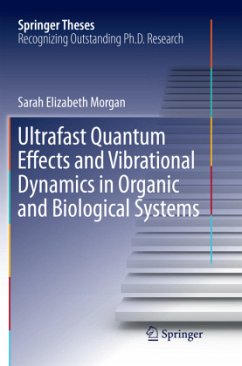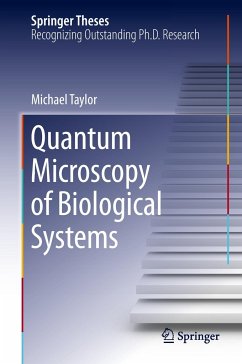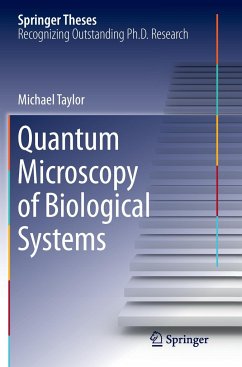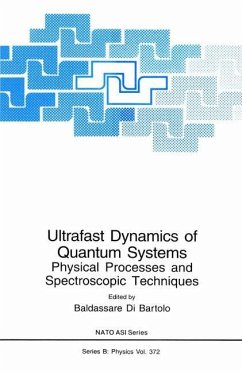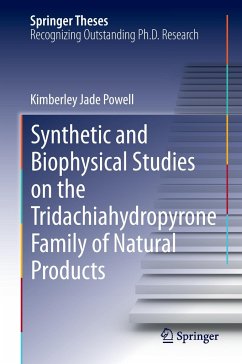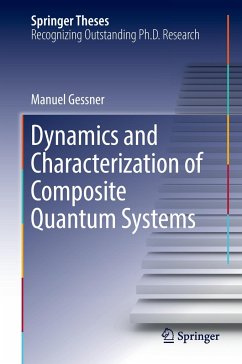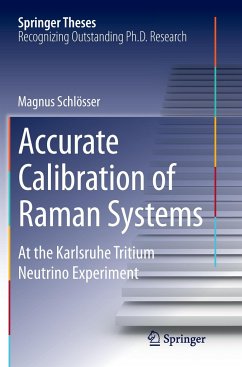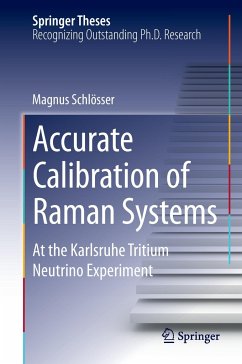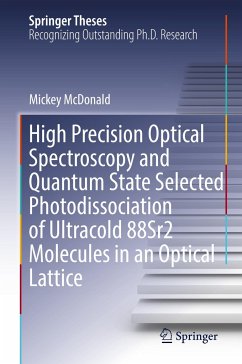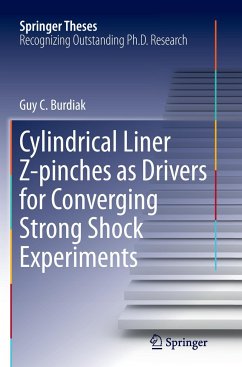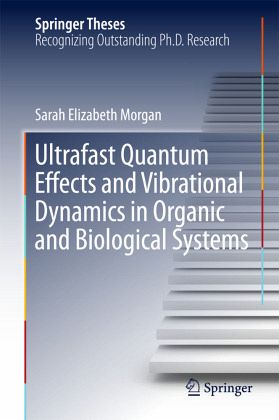
Ultrafast Quantum Effects and Vibrational Dynamics in Organic and Biological Systems
Versandkostenfrei!
Versandfertig in 6-10 Tagen
76,99 €
inkl. MwSt.
Weitere Ausgaben:

PAYBACK Punkte
38 °P sammeln!
This thesis focuses on theoretical analysis of the sophisticated ultrafast optical experiments that probe the crucial first few picoseconds of quantum light harvesting, making an important contribution to quantum biology, an exciting new field at the intersection of condensed matter, physical chemistry and biology. It provides new insights into the role of vibrational dynamics during singlet fission of organic pentacene thin films, and targeting the importance of vibrational dynamics in the design of nanoscale organic light harvesting devices, it also develops a new wavelet analysis technique ...
This thesis focuses on theoretical analysis of the sophisticated ultrafast optical experiments that probe the crucial first few picoseconds of quantum light harvesting, making an important contribution to quantum biology, an exciting new field at the intersection of condensed matter, physical chemistry and biology.
It provides new insights into the role of vibrational dynamics during singlet fission of organic pentacene thin films, and targeting the importance of vibrational dynamics in the design of nanoscale organic light harvesting devices, it also develops a new wavelet analysis technique to probe vibronic dynamics in time-resolved nonlinear optical experiments. Lastly, the thesis explores the theory of how non-linear "breather" vibrations are excited and propagate in the disordered nanostructures of photosynthetic proteins.
It provides new insights into the role of vibrational dynamics during singlet fission of organic pentacene thin films, and targeting the importance of vibrational dynamics in the design of nanoscale organic light harvesting devices, it also develops a new wavelet analysis technique to probe vibronic dynamics in time-resolved nonlinear optical experiments. Lastly, the thesis explores the theory of how non-linear "breather" vibrations are excited and propagate in the disordered nanostructures of photosynthetic proteins.



